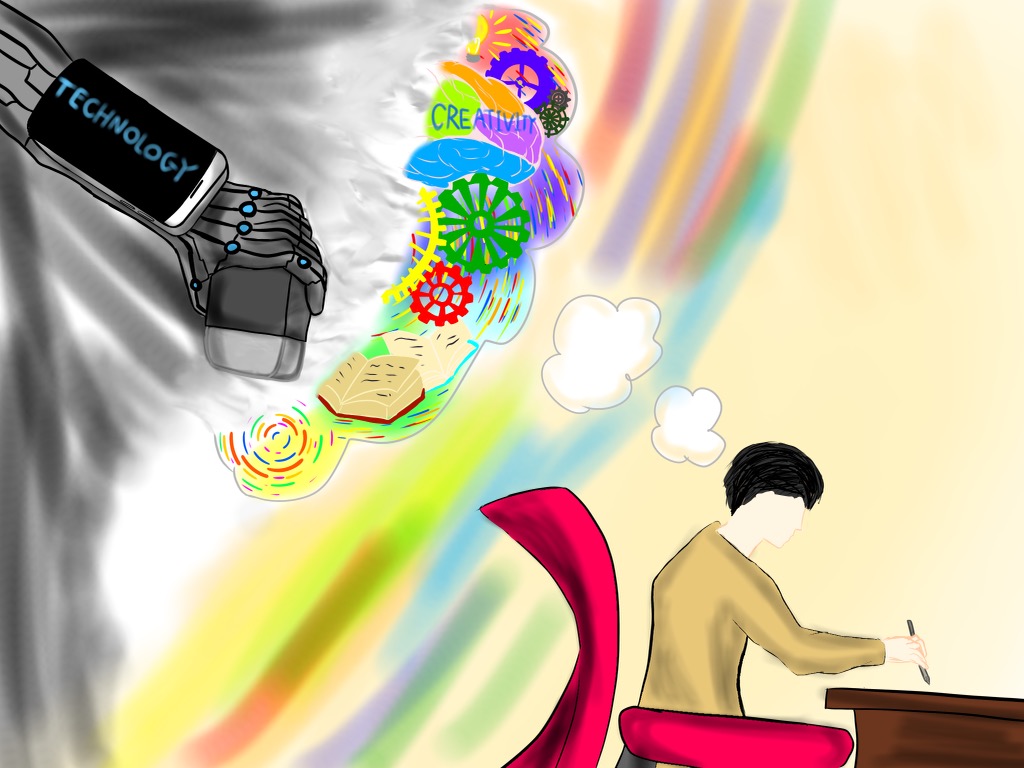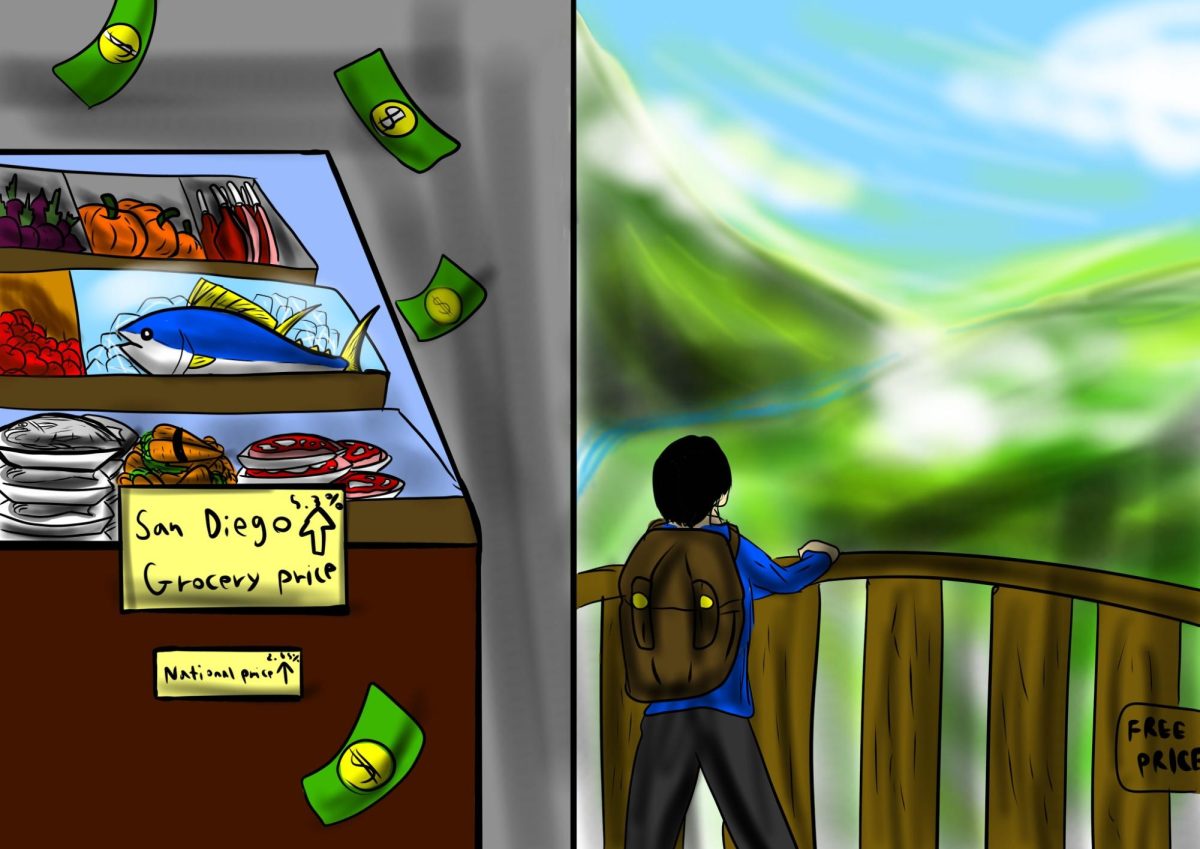On Lateral Action, Mark McGuinness, a poet and creative coach, said, “Could the death of boredom mean the death of your creativity?”
As technology plagues people’s ability to be bored, their creativity suffers. The world and its innovation are built on creativity. Without creativity, how is it possible for change to transpire? How can humanity evolve without it? Society has reached a crisis; technology is burning the fundamental base for an ever-changing world.
According to Exploding Topics, “Worldwide, there are approximately 7.21 billion smartphones. To put that into perspective, that figure accounts for around 90% of the 8 billion global population.”
There is no escape from technology; its use is engraved into society. As the previous figure shows, virtually everyone on the planet owns a smartphone. The incredible use of technology and what it has done for our humanity should not be undermined; however, it is detrimental to our creativity and originality.
People no longer think for themselves. Think about it. Is it possible to just sit and be bored, without a phone these days?
According to Science Direct, smartphones are “occupying moments of free thought,” stealing the ability to create original ideas in the hope of evolving humanity.
Creativity requires flow, the ability to tune in with yourself. Nevertheless, technology’s addictive immersive experiences constantly disrupt the brain’s flow, and the compulsion infiltrates, and kills, our ability to just be.
According to The Swaddle, “Addiction to smartphones may prevent the brain’s prefrontal cortex and temporal areas from being active when thinking creatively.” The article explained a new study, published in Social Cognitive and Affective Neuroscience, that indicates that an immoderate amount of time on smartphones “can indeed curb our brains’ creative capacity.”
In the study, the participants were assigned to perform a creative task, and researchers used the Smartphone Addiction Scale. The participants with high SAS scores performed inadequately concerning their creativity skills.
The study concluded that “through neuroimaging…participants with a high SAS score, the brain’s prefrontal cortex and temporal areas were not as active when asked to think creatively, compared to those with low SAS scores.”
This study essentially concerns and targets younger generations. According to Soy Momo, “nearly half of children in the US receive their first smartphone by the age of 10 years old.” From the age of around 10, children are taught to rely on technology throughout multiple facets of their lives. Smartphones are crutching children’s ability to stand tall in their novelty.
“I am concerned because I feel like it is really affecting kids’ attention spans and learning, especially because it’s so early on during developmental stages of life,” Faith Bailey (12) said.
According to Make a Difference, “younger generations feel like technology is like one of their limbs and don’t understand that this sensory overload is not good for them…their nervous systems are breaking and they don’t know how to return to emotional regulation.”
Bailey mentioned that during her Drawing and Design class, when given a prompt she “notices that a lot of kids and teens don’t have an initial thought of actually using their creativity and natural talents to create something of their own, instead they immediately go to the internet to give them something to copy down, and, all in all, that pattern just diminishes their ability to create something with personal meaning or interest.”
Hanna Chavez (12) also expressed her concern for technology, specifically regarding social media platforms, and the ability to be creative.
“Social media affects people’s creativity in a negative way because it promotes copying instead of doing the work themselves…it’s harder to come up with unique ideas since there’s already so much on social media,” Chavez said.
A zest for creating new things is becoming overly reliant on technology. Children, and everyone else, are pressuring creativity out of devices that are killing that human gift. Ultimately, it is up to each individual to restore faith in the human process of thought, without the disruption of technology.










